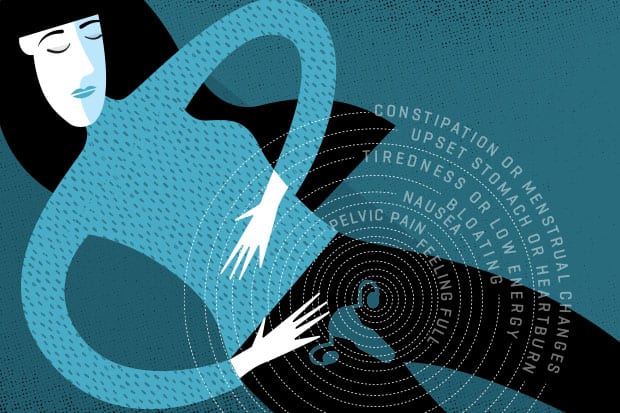While the cancer of the ovary is rare but causes more deaths compared to any other cancer type.
Therefore, the ovarian tumor must be detected & treated sooner, during the initial stages as then the percentage of recovery is considerably high.

However, the detection of ovarian cancer early is hard as most symptoms are common such as bloating, change in appetite, tiredness, and bowel moments.
Early diagnosis of ovarian treatment is of paramount importance, in order to prevent what could follow.
Unexpected Causes of Ovarian Cancer
Talcum powder has been shown to be a potential lead to ovarian cancer. Although it sounds strange, this is why many talcum powder lawsuits against the international manufacturers of cosmetic and beauty brands are occurring.
Women have claimed that they have developed ovarian tumors because of greater exposure to talcum powder.
A giant in the talcum powder industry lost the battle to 22 women who lodged a lawsuit; the jury asked the company to pay $4.69 billion as compensation for the patients, but still, consumers cannot boycott the use of talcum powder as there is no conclusive medical research.
Hopefully, in the years to come, we might answer this red-hot debate going on around the globe.
Treatment for Ovarian Cancer-
When you come across the prevalent signs of ovarian cancer or your physician is unable to understand your problem and the symptoms are not going away, then it is best to consult a trustworthy gynecologic oncologist.
Who Is a Gynecologic Oncologist?
A doctor with expertise in women’s reproductive system problems.
They will recommend undergoing some tests, and once the tumor is identified in the ovary, the doctor will work with you to create a treatment plan.
Types of Ovarian Cancer Treatment

Typically, the treatment for ovarian tumors involves a combination of chemotherapy & surgery.
Surgery:
The gynecologic oncologist will remove cancerous tissue in the ovary. One important thing to note here is that the people with a lump in the ovary may have to undergo surgery at some point of this disease, however, the goals of surgery will vary.
Chemotherapy:
Like any other form of cancer, the doctor will make use of the special medicines to either shrink or kill the cancer tissue. The drugs for eliminating the cancer is often given to the patient in the form of pills or introduced directly into the veins, sometimes a combination of both.
The different treatments for ovarian cancer are done in the supervision of a qualified gynecologic oncologist.
Which Treatment is Best For You?
Choosing the right treatment is not in the hands of the patient, here, your doctor has the final say. It is straightforward to speak to your gynecologic oncologist to know what treatment is best for you based on your type and stage of cancer.
The doctor will make you aware of the pros and cons of each ovarian cancer treatment, along with the common side effects associated with it.
And, most importantly, how your body is expected to react to the different treatments and the practical chances of recovery.
Sometimes, getting a second opinion is a no-brainer to clear your mind of any query or doubt regarding a particular treatment.








